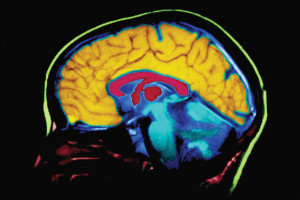Can vitamins ward off Alzheimer’s?
 There have been a couple of recent articles about common vitamins and their effect on individuals with Alzheimer’s disease. I thought it was a great opportunity to recap some of these supplements and what we know about them.
There have been a couple of recent articles about common vitamins and their effect on individuals with Alzheimer’s disease. I thought it was a great opportunity to recap some of these supplements and what we know about them.
Vitamin C
There is not much research available on the effects of vitamin C on Alzheimer’s disease. However, the antioxidant’s effect on Alzheimer’s was explored in a study that simultaneously looked at the effects of vitamin E and an antioxidant called coenzyme Q3. In the study, individuals with mild to moderate Alzheimer’s disease were given either a combination of vitamins C and E; coenzyme Q3; or a placebo. Cognitive tests showed no improvement as a result of taking these antioxidants – in fact, in some cases, the antioxidants seemed to actually accelerate cognitive decline.
Vitamin D
A study presented at the Alzheimer’s Association International Conference in 2010 found that in individuals aged 65 or older, those with vitamin D deficiency were 42 percent more likely to develop cognitive impairment than individuals without vitamin D deficiency; and those with severe vitamin D deficiency had a 394 percent increased risk, making them nearly four times as likely to develop cognitive impairment as those who were not vitamin D deficient. This finding is consistent with the findings of previous European studies. The Alzheimer’s Association is currently funding more research into this area.
Vitamin E
Free radicals are a byproduct of normal cell function and quickly attack other cells, causing damage to those cells. Cells have natural defenses against this damage, which includes the antioxidant vitamin E; however, with age, cells lose these natural defenses. Since brain cell damage plays a role in Alzheimer’s disease, the theory is that vitamin E may protect brain cells.
Vitamin E’s use in Alzheimer’s disease is based chiefly on a 1997 study showing that high doses delayed loss of ability to carry out daily activities and placement in residential care for several months. However, more recent studies have found that high-dose vitamin E may slightly increase the risk of death, especially for those with coronary artery disease. For the most part, due to the mixed findings and the risks of taking high doses of Vitamin E, families should proceed with caution. No one should take vitamin E to treat Alzheimer’s disease except under the supervision of a physician. Vitamin E “” especially at high doses “” can negatively interact with other medications, including those prescribed to keep blood from clotting or to lower cholesterol.
The bottom line
There are a lot of research studies out there exploring the benefits and drawbacks of different vitamins and supplements for Alzheimer’s and other forms of dementia and cognitive decline. So far the studies on whether vitamins help reduce Alzheimer’s symptoms have been mixed. The research on Vitamin D is promising however and we look forward to seeing more studies on this subject.
For more information on the latest news and developments in Alzheimer’s research, visit www.alz.org/research.

















